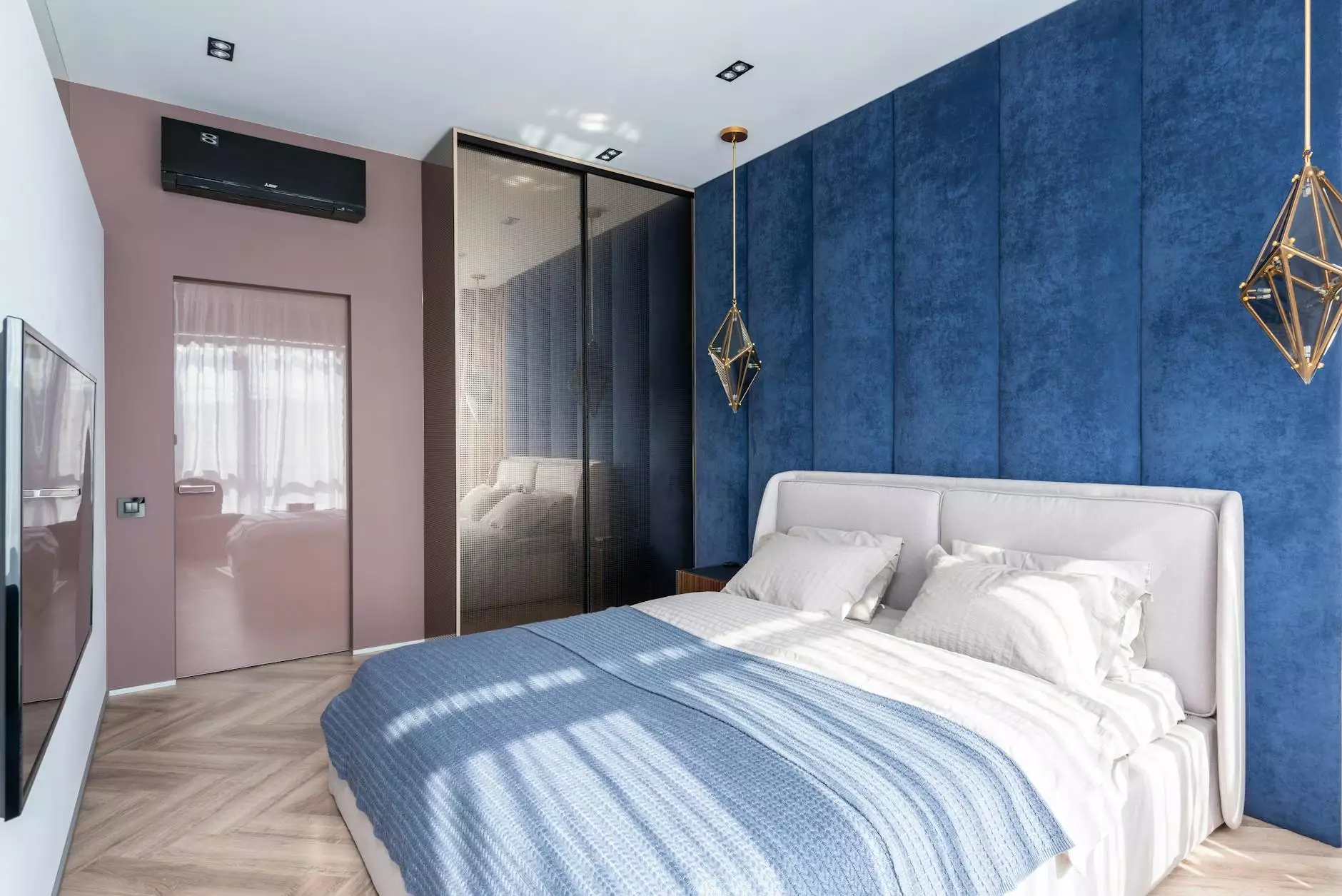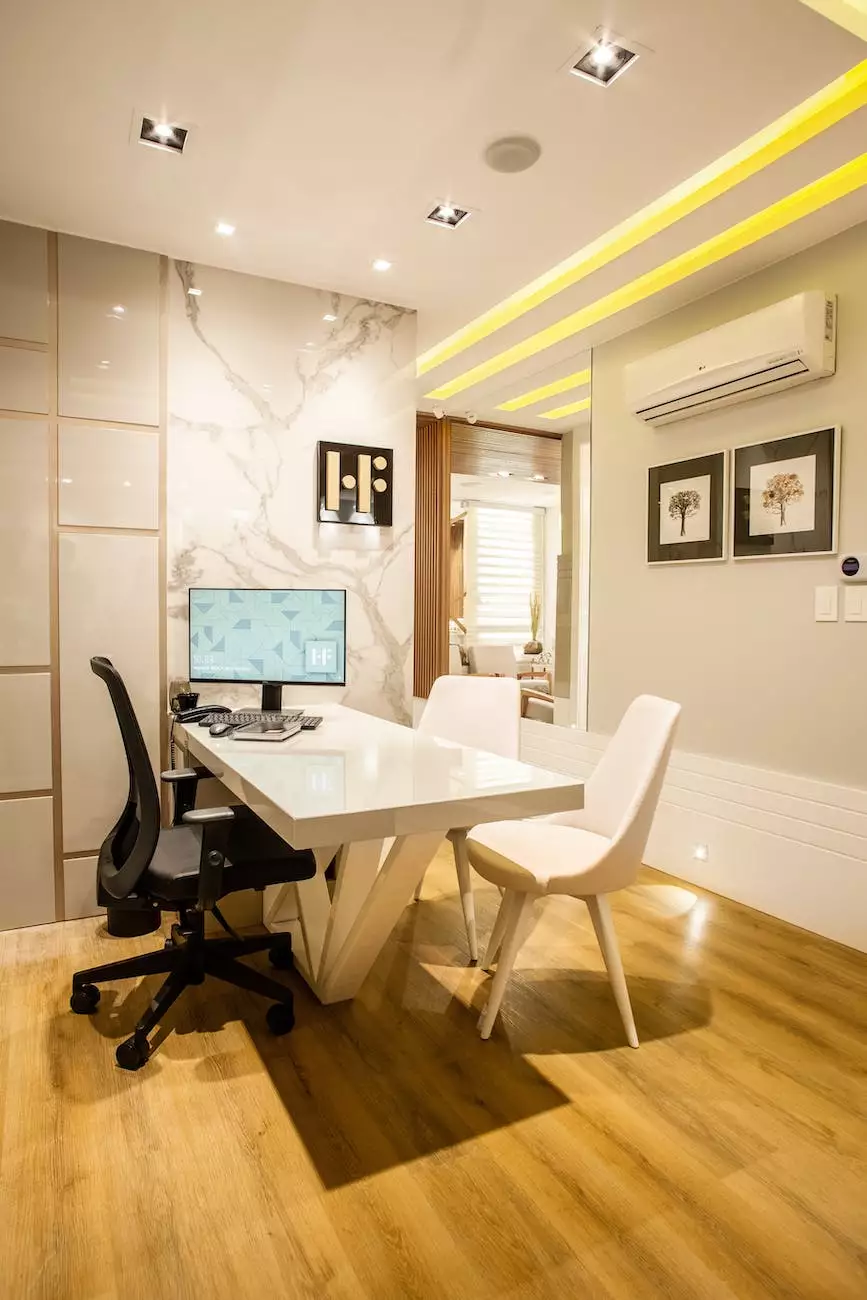Humidifiers & Dehumidifiers - Enhancing Indoor Air Quality

Introduction
Creating a healthy living environment is essential in promoting overall well-being. One crucial aspect of a healthy indoor environment is maintaining optimal humidity levels. This is where humidifiers and dehumidifiers play a vital role. In this comprehensive guide, we will explore the benefits, types, and considerations when choosing these devices to enhance your indoor air quality.
The Importance of Indoor Air Quality
Indoor air quality (IAQ) refers to the quality of air within and around buildings, particularly in relation to occupant health and comfort. Poor IAQ can lead to various health issues, including respiratory problems, allergies, and even compromised immune systems. Proper humidity control is a significant factor in maintaining optimal IAQ.
Humidifiers - Adding Moisture to Dry Environments
Dry air can cause discomfort and a range of health problems. Humidifiers are designed to add moisture to the air, increasing humidity levels and providing relief from dry skin, irritated nasal passages, and respiratory issues. They can be particularly beneficial in arid climates or during winter months when heating systems tend to dry out the air.
Types of Humidifiers
Humidifiers come in various types to suit different needs:
- Ultrasonic Humidifiers: These use ultrasonic vibrations to produce a fine mist, creating a cool fog that humidifies the air.
- Evaporative Humidifiers: These use a fan to blow air through a wet wick or filter, causing water to evaporate and increase moisture levels in the air.
- Steam Vaporizers: Steam vaporizers heat water to produce steam, which is then released into the air as warm mist.
- Impeller Humidifiers: Also known as cool mist humidifiers, impeller humidifiers use a rotating disc to create a cool mist.
Benefits of Humidifiers
Investing in a quality humidifier can yield several benefits:
- Relieves Respiratory Issues: Properly humidified air can alleviate dry sinuses, congestion, and coughing.
- Improves Skin Health: Adequate humidity levels help maintain skin hydration, reducing dryness, itching, and irritation.
- Enhances Comfort: Dry air can cause discomfort, including sore throats, dry eyes, and static electricity. Humidifiers alleviate these issues, creating a more comfortable living environment.
- Protects Furniture and Wood: Dry air can cause wood to dry out and crack. By maintaining optimal humidity levels, humidifiers help preserve furniture, musical instruments, and wooden flooring.
Dehumidifiers - Controlling Excess Moisture
While humidity is necessary, excessive moisture can lead to mold growth, musty odors, and damage to your home and possessions. Dehumidifiers are designed to extract excess moisture from the air, effectively reducing the risk of mold and mildew growth.
Types of Dehumidifiers
Dehumidifiers come in different types, each with its own unique features:
- Refrigerative Dehumidifiers: These dehumidifiers use a refrigeration cycle to cool and condense moisture, similar to how air conditioners work.
- Desiccant Dehumidifiers: Desiccant dehumidifiers use absorbent materials like silica gel to draw moisture from the air.
Benefits of Dehumidifiers
A well-functioning dehumidifier can provide numerous advantages:
- Prevents Mold and Mildew: By reducing excess moisture, dehumidifiers help control mold and mildew growth, protecting your health and property.
- Improves Indoor Air Quality: Removing excess moisture also helps reduce musty odors and airborne allergens, enhancing overall IAQ.
- Protects Structural Integrity: Excess humidity can lead to structural damage, such as rotting wood, peeling paint, and damaged insulation. Dehumidifiers mitigate these risks.
- Saves Energy: By removing excess moisture from the air, dehumidifiers can improve the efficiency of your air conditioning system, leading to potential energy savings.
Choosing the Right Humidifier or Dehumidifier
Now that you understand the benefits and types of humidifiers and dehumidifiers, it's important to consider some key factors when selecting the right device for your needs.
Factors to Consider
- Room Size: Determine the square footage of the area you want to humidify or dehumidify. Different devices have varying capacity recommendations.
- Noise Level: Consider the noise output of the device, especially if you plan to use it in bedrooms or other quiet spaces.
- Features and Controls: Look for additional features such as adjustable humidity settings, timers, filters, and automatic shut-off for convenience and customization.
- Maintenance: Factor in the upkeep required, such as filter changes, water tank cleaning, and overall maintenance needs.
- Budget: Set a budget range that suits your needs and explore devices within that range.
Consult with Experts
If you are unsure about which humidifier or dehumidifier to choose, consult with HVAC professionals or indoor air quality specialists. They can assess your specific needs and provide valuable recommendations.
Conclusion
Humidifiers and dehumidifiers are essential tools in maintaining a healthy indoor environment. By investing in top-notch devices and understanding your unique requirements, you can effectively regulate humidity levels and enjoy improved indoor air quality. Remember to consider the factors we discussed when choosing the right humidifier or dehumidifier for your space, and don't hesitate to consult with professionals to ensure optimal results.










